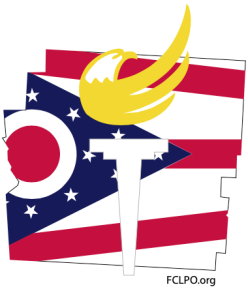Elections are fast approaching, and every major party candidate has a plank about the opioid crisis. With over 4,000 dead of overdose in 2016 alone (over double the number of overdose deaths in 2012, and almost 4 times greater than the number of traffic deaths in 2016), it is an urgent issue that needs to be resolved. However, Ohio’s current solution isn’t working. In spite of Ohio “investing about $1 billion each year to help communities battle the scourge of drug abuse and addiction at the local level” (August 30, 2017 ODH News Release), deaths from opioids have skyrocketed. In spite of increased police funding, resources to bust drug dealers, drug use education, and state sponsored rehabilitation programs, we saw an increase of 1000 overdose deaths in 2016. A $170 million increase in funding for results so bad that calling them disastrous would be a compliment.
Both major party candidates don’t just have it as the first issue on their campaign websites, but offer nearly identical “solutions” to the crisis. I would never have guessed that declaring an emergency makes things better, but I am fairly sure that we have been hearing DARE’s drug education since elementary school. I guess all we need is more cops to fix the issue. Let’s be very clear here: this is more of the same policies that have been used as the crisis has gotten worse. This is forcing people away from prescription drugs and onto the even more dangerous fentanyl. It is time for a wakeup call, the status quo is not working.
Rather than continuing to double down on the war on drugs that Ohio has decisively lost, we can go out around the world and pick policies with a proven track record to bring back home. Here are a couple suggestions of the most successful policies for decreasing opioid overdoses. And rather than costing billions, they actually save the taxpayers money.
Legalize marijuana:
How is this related? It is well established that states which have legalized marijuana have seen an over 25% reduction in opioid deaths on average relative to similar states that didn’t. Beyond being a less harmful and addictive pain medication for chronic problems treated with opioids, marijuana is widely known as one of the best cures of withdrawal symptoms. There are obviously a lot of other reasons to legalize, but this one applies directly to the issue at hand.
Decriminalize all drugs:
This is a much more radical proposal but one with strong evidence, especially in the case of Portugal. In the 90s, Portugal had over 1% of its population addicted to heroin. In 2001, they had one of the highest overdose rates in the world, at nearly 80 people per million dying of opioid overdose. But that year, they decriminalized the use of all drugs and have seen a dramatic change for the better. As of 2016, there have only been 6 overdose deaths per million, well below the average in Europe (17.3), and far below the 185 overdose deaths per million in the US. Their 90% improvement is one we can follow. This policy also frees up law enforcement and courts to focus on real crimes, rather than what consenting adults are putting in their bodies.
While those two solutions will not end all overdoses, and I fear nothing ever will, they have a far better track record than any solution being touted out by major party candidates. And that is in Ohio, where 1/6 people already use marijuana, the majority supports marijuana legalization, but establishment politicians still will not oven vote about legalizing marijuana or implement the medical licenses that have been promised for years. But libertarians are the one who are pushing for the solutions that put power back in the hands of the individual. We favor policies that don’t empty your wallet, and that actually work.
